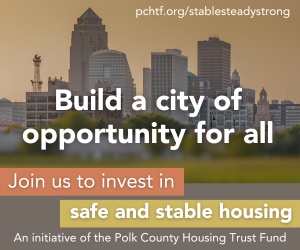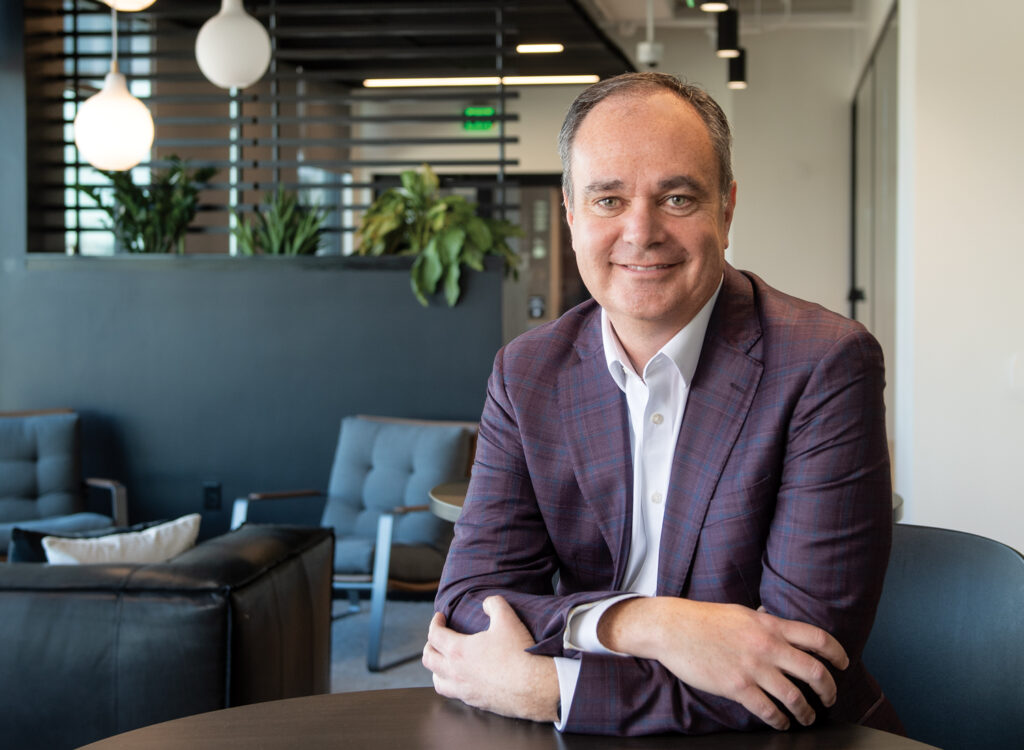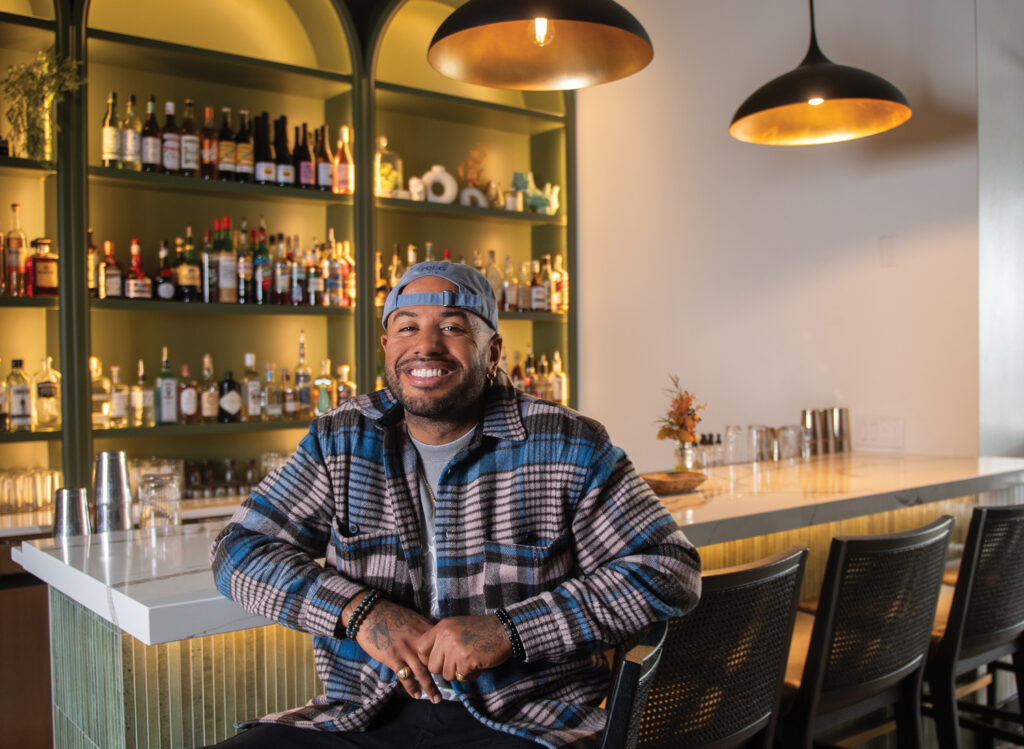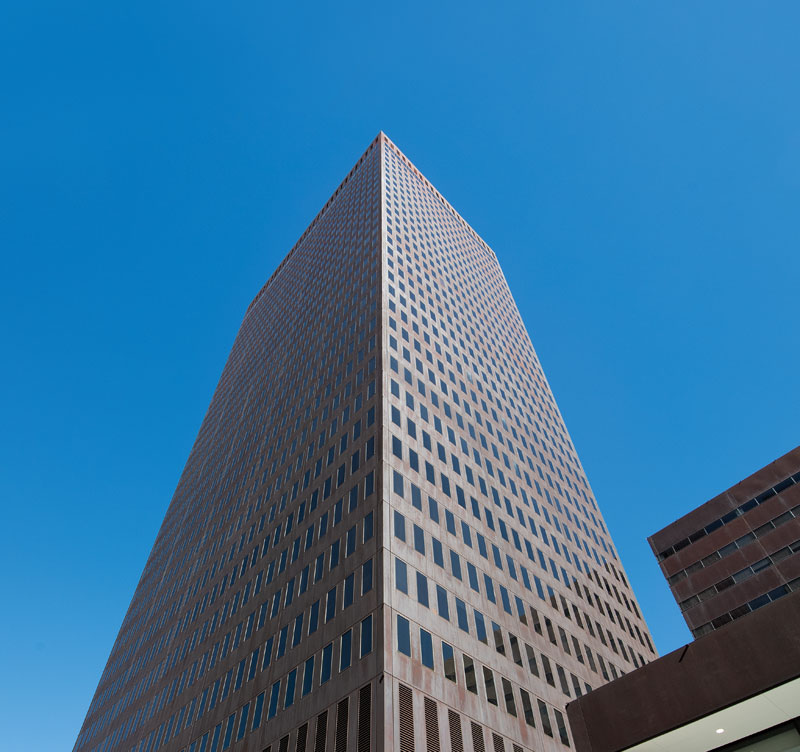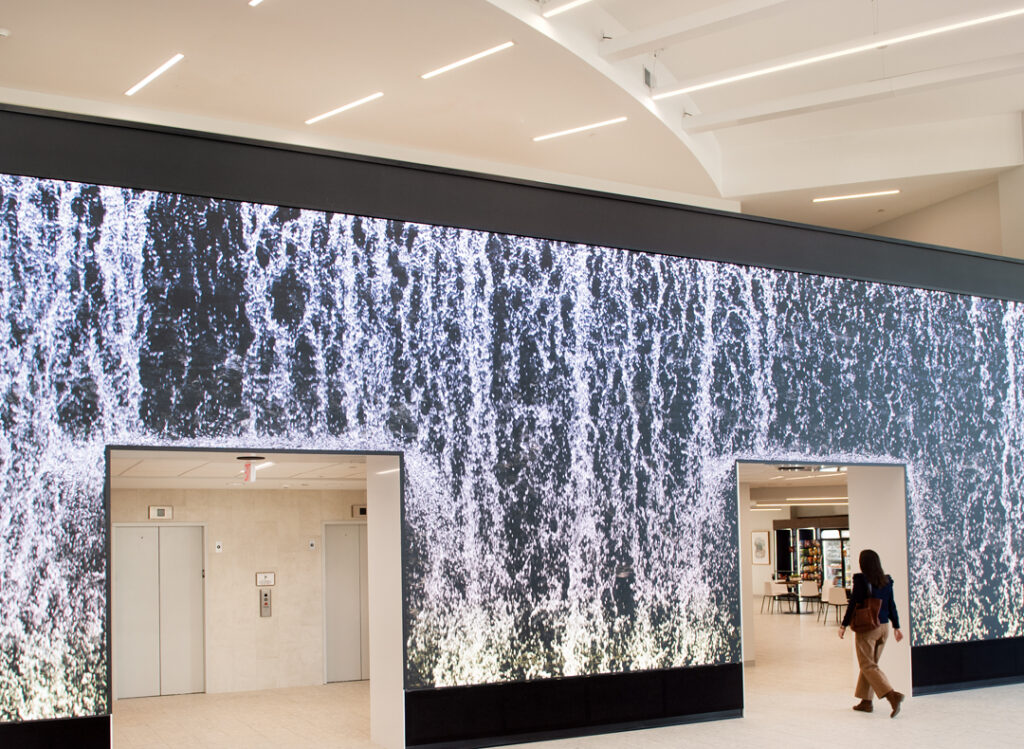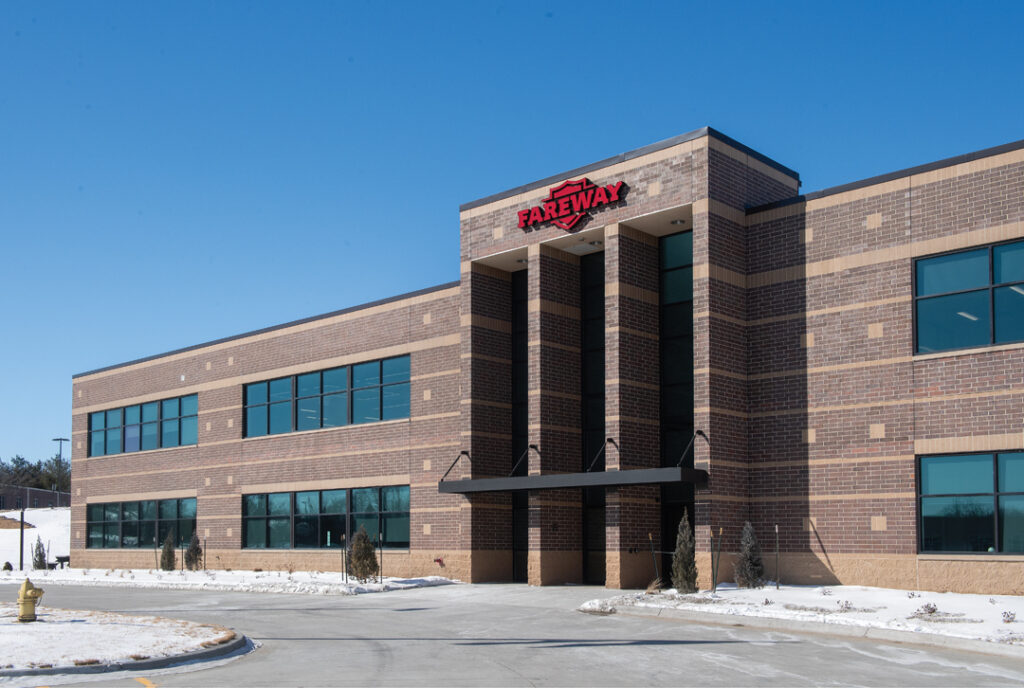A Closer Look: Andrea Woodard
Take a closer look at the Greater Des Moines Partnership’s new director of public policy and strategic initiatives

PERRY BEEMAN Oct 17, 2018 | 1:17 pm
6 min read time
1,334 wordsBusiness Record Insider, The Insider NotebookJust about anyone who does regular business with the Greater Des Moines Partnership knows Andrea Woodard.
A proud graduate of the University of Iowa, Woodard is one of the key logistical forces behind such high-profile Partnership efforts as the annual policy book and the related lobbying trip to Washington, D.C.
Which means somehow, after studying politics and communications, working for legislative leaders and working a stint at a private policy shop here in town, she has managed to learn how to put a 10,000-piece puzzle together when the pieces change all the time and the wind keeps gusting.
The Partnership leads with inclusion and participation, and let’s just say democracy is never easy. Neither is getting a full slate of speakers set up and then dealing with the inevitable cancellations. Or balancing the interests of hundreds of business representatives, many of them execs used to controlling what happens.
If you know Woodard casually, you would assume that the smile never leaves her face and you would expect silence to be the worst you’d ever see from her. But we have the exclusive, below, on what she does when she’s mad. And she even admitted to being Type A.
But mostly, we confirmed what we already knew. Woodard is an even-tempered, talented professional in a building full of them, and her recent promotion to director of public policy and strategic initiatives positions her among some of the Partnership’s most important staff members.
We interviewed Woodard at the Partnership about her approach to the job.
What is your new role?
While I’m still doing nearly everything [I was doing before], I was looking for some new opportunities. The biggest addition to my job description is working on and leading the DSM Fellowship Program. It’s part of the talent development team, Mary Bontrager’s team, and was formed as a recruitment and retention tool for our investors, who want to keep a diverse group of highly skilled workers in their companies and here in our region. We have 24 individuals from 14 companies in the first [fellowship] group. Generally speaking, they are around the one-year mark. It’s a two-year program.
Starting next spring or summer, after this pilot, the group will be recent college graduates, from all over. [The pilot involved workers already in Des Moines. The main program will be about bringing people here, and trying to persuade them to stay.] The program is focused on professional development, leadership development, getting education about the community, mentorship and general community engagement.
What specifically will you be working on?
We’re working with Tero International on the curriculum piece. But I am leading the work of not just the coordination of the program, but also growing and expanding the program, connecting individuals and leaders and passions that they may have for getting involved in the community. The end goal is to make sure that these young people stay in Des Moines. I will be involved in the recruitment of applicants. Also, we have a job posting out for someone who will be doing college campus visits.
How does the fellowship program work?
The employers pay for their employees to participate. The fellows work paid jobs at the company, and attend fellowship sessions two or three times a month or so, while still getting paid.
Are there other additions to your old position, director of public policy?
The other one that I’m working on is re-engaging the Partnership in the EPIC Corporate Challenge with Iowa Women Lead Change. It’s something we committed to a few years ago and want to increase our efforts. The EPIC Corporate Challenge is a commitment that companies and organizations are making to monitor and put in place to put more women into roles in leadership and on the boards. How can we bring awareness to the importance of diversity at all levels of leadership?
What are your other duties?
I mainly focus on policy advocacy, so I’m a registered lobbyist. But a big chunk of my day-to-day is organizing and coordinating both the work of our government policy council and also our policy-related events — candidate forums, legislative reception and luncheon, our day on the Hill, and our annual D.C. trip.
What were you doing before you joined the Partnership?
I was in state government. I was a research analyst. I staffed transportation, natural resources, and the administrative and regulatory budget. Previously, I had been in the minority leader’s office, and at LS2[group].
What attracted you to the Partnership?
I had been on the young professionals board. I sort of replaced Jessica Maldonado [now with PolicyWorks] at the Partnership. Kind of a fun story: That job opened up right around the time Grant and I got married. We had to work around the election cycle because Grant was Jack Hatch’s campaign manager for governor that year. So we got married Nov. 22, 2014. I applied for the job on Thursday. We got married on Saturday. We drove back to Des Moines on Sunday. I interviewed on Monday. We left for our honeymoon [in Hawaii] on Tuesday. I accepted the job from the honeymoon a week later.
What did your husband, Grant, think of that whirlwind?
We had dated since 2009, so at that point he knew that he was never going to be as busy as I am.
How are you wired?
I’m the first child of five. I’m pretty Type A. I would rather lose my phone than my planner.
Wait a minute, is that a paper planner?
[Sam Hoyle, Woodard’s colleague and media guru, interjects: “Which generation are you in?”] It’s a daily format. This is right now. There is a lot in there.
So what happens when you have a bad day?
I usually contain my anger to my car, a little road rage, and the Dammit Doll [see https://amzn.to/2D81sxd] I have at home. I run. One of my tricks is that when I want to send an email that I want to be a little more harsh on, I think about what I would say if it were my best friend, and that’s what I try to write. I separate myself from frustration, and then run it off.
What about your best days?
I like to have a glass of wine, a pinot grigio or a sauvignon blanc.
What are your goals in the new job?
Really, to be a resource and to help individuals in the program grow. While we are obviously working closely with the business members, the goal at the end of the day is to provide these fellows a good experience. So if we can connect them and help them identify what they’re passionate about, we can keep them here.
For instance, a couple weeks ago, they heard from Rick Tollakson and Todd Ashby on the water trails, so it’s connecting them with Rick and Todd, should they be interested in getting more involved, and as they discover what type of interests they have in the community, helping make those connections so that as individuals, they can dig deeper.
Is it easier to sell Des Moines now with all the improvements?
I think that helps a lot. But I think the talent conversation we’ve had, too, shows us that there’s still a lot of competition for these individuals and the quality of life is huge for younger generations deciding where they want to live.
What activities did you do in school?
I was a cheerleader at the University of Iowa. I was cheerleading at the Capital One Bowl for “The Catch” [Drew Tate to Warren Holloway, last play of game, 56 yards for the win bit.ly/2D9BHfV]. In the two years I cheered, I cheered volleyball, wrestling, women’s basketball, men’s basketball and football. I was a gymnast up until middle school, in the gym 25 hours a week. I ran track, speech team, student council. I played saxophone.
And now?
Board service. I run. I’ve done nine marathons in eight capital city marathons. I visit family in Cedar Rapids.

